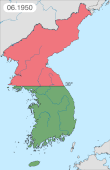
The Ministry of Foreign Affairs is responsible for managing the foreign relations of Brazil. Brazil has the largest economy in Latin America and is a key political and economic power on the world stage. Brazil's foreign policy reflects its role as a regional power and a potential world power and is designed to help protect the country's national interests, national security, ideological goals, and economic prosperity.

Foreign relations of Kazakhstan are primarily based on economic and political security consideration. The Nazarbayev administration has tried to balance relations with Russia and the United States by sending petroleum and natural gas to its northern neighbor at artificially low prices while assisting the U.S. in the War on Terror. Kazakhstan is a member of the United Nations, Collective Security Treaty Organization, Organization for Security and Co-operation in Europe, North Atlantic Cooperation Council, Commonwealth of Independent States, the Shanghai Cooperation Organisation, and NATO's Partnership for Peace program. Kazakhstan established a customs union with Russia and Belarus which eventually became the Eurasian Economic Union. President Nazarbayev has prioritized economic diplomacy into Kazakhstan's foreign policy.

China, officially the People's Republic of China (PRC), has full diplomatic relations with 180 out of the other 192 United Nations member states, Cook Islands, Niue and the State of Palestine. As of 2024, China has had the most diplomatic missions of any state.

As of June 2024, Vietnam maintains diplomatic relationships with 190 UN member states, State of Palestine and Sahrawi Arab Democratic Republic. In 2011 the Central Committee of the Communist Party of Vietnam, at the 11th National Congress of the Communist Party of Vietnam, released an official statement about Vietnam's foreign policy and a section of the statement stated: "Vietnam is a friend and reliable partner of all countries in the international community, actively taking part in international and regional cooperation processes. Deepen, stabilize and sustain established international relations. Develop relations with countries and territories in the world, as well as international organizations, while showing: respect for each other's independence; sovereignty and territorial integrity; non-interference in each other's international affairs; non-use or threat of force; settlement of disagreements and disputes by means of peaceful negotiations; mutual respect, equality and mutual benefit."
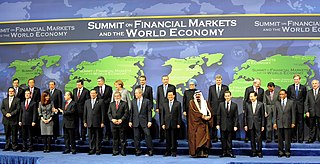
A middle power is a state that is not a superpower or a great power, but still exerts influence and plays a significant role in international relations. These countries often possess certain capabilities, such as strong economies, advanced technologies, and diplomatic influence, that allow them to have a voice in global affairs. Middle powers are typically seen as bridge-builders between larger powers, using their diplomatic skills to mediate conflicts and promote cooperation on international issues.

Japan is a middle power and a member of numerous international organizations, including the United Nations, the OECD, and the Group of Seven. Although it has renounced its right to declare war, the country maintains Self-Defense Forces that rank as one of the world's strongest militaries. After World War II, Japan experienced record growth in an economic miracle, becoming the second-largest economy in the world by 1990. As of 2021, the country's economy is the third-largest by nominal GDP and the fourth-largest by PPP.

The Department of Foreign Affairs is the executive department of the Philippine government tasked to contribute to the enhancement of national security, protection of the territorial integrity and national sovereignty, to participate in the national endeavor of sustaining development and enhancing the Philippines' competitive edge, to protect the rights and promote the welfare of Filipinos overseas and to mobilize them as partners in national development, to project a positive image of the Philippines, and to increase international understanding of Philippine culture for mutually-beneficial relations with other countries.

The Forum on China–Africa Cooperation (FOCAC) is an official forum between the People's Republic of China and all states in Africa with the exception of the Kingdom of Eswatini. It is the primary multi-lateral coordination mechanism between African countries and China and since 2018 is viewed by those countries as a cooperation platform within the Belt and Road Initiative.

Russia–South Korea relations or Russian–South Korean relations are the bilateral foreign relations between Russia and South Korea. Modern relations between the two countries began on September 30, 1990. Due to the 2022 Russian invasion of Ukraine, relations became very tense after South Korea imposed sanctions against Russia. Russia placed South Korea on a list of "unfriendly countries", along with Taiwan, Japan, Singapore, the United States, European Union members, NATO members, Canada, Australia, New Zealand, Norway, Switzerland, Micronesia and Ukraine.

China–Kenya relations refer to the bilateral relations between the People's Republic of China and Kenya. The two countries established relations in 1963, suspended ties temporarily in 1967, but ultimately re-established diplomatic relations in 1978. Since then, they have significantly expanded their economic and investment agreements, such that China is currently Kenya's largest trading partner. While the robust trade, investment, and Chinese-led infrastructure projects have benefitted Kenya's overall development and have been labelled by both governments as "win-win" collaborations, local media and foreign analysts have increasingly criticized both the potential consequences of Kenya's loans from China as well as Kenya's overall economic dependence on foreign capital and products. The most ambitious collaboration, the Standard Gauge Rail that was planned to connect Nairobi, Kenya, Uganda, South Sudan, and Rwanda using Chinese financing and contractors, has attracted even more controversy due to financial complications, questions on the legality of its tender process, and the alleged collateralization of Kenya's Mombasa port.

Fiji and South Korea established official diplomatic relations in January 1971, Korea having recognised Fiji's accession to independence the previous year. There is a South Korean embassy in Suva and a Fijian embassy in Seoul. Fiji opened its embassy in Seoul in July 2012 to "foster trade and investment" and to "promote people-to-people exchanges".

China–Sudan relations are the bilateral relations between the People's Republic of China and the Republic of Sudan. China is currently one of Sudan's largest trade partners, importing oil and exporting low cost manufactured items as well as armaments into the country. Both states enjoy a very robust and productive relationship in the fields of diplomacy, economic trade, and political strategy. They formally established diplomatic relations on February 4, 1959, when Sudan formally recognized the sovereignty of the People's Republic of China and have since become close global allies, supporting each other in times of internal crises and international controversy such as during the Second Sudanese Civil War, the Darfur Crisis, and the Xinjiang Conflict. China continues to provide massive support to Sudan by developing its oil resources and supplying millions of dollars in loans, aid, foreign direct investments, and humanitarian assistance. In return, Sudan has become a reliable political and economic ally in the international arena, allowing China to maintain a significant stake in its oil sector.
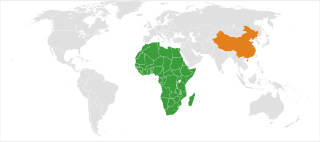
Sino–African relations, also referred to as Africa–China relations or Afro–Chinese relations, are the historical, political, economic, military, social, and cultural connections between China and the African continent.
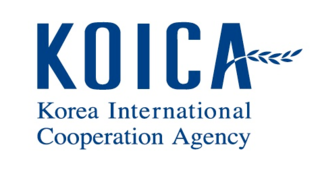
The Korea International Cooperation Agency was established in 1991 by the Ministry of Foreign Affairs of South Korea as a governmental organization for Official Development Assistance (ODA). KOICA's goal is to enhance the effectiveness of South Korea's grant aid programs for developing countries by implementing the government's grant aid and technical cooperation programs. KOICA is led by three-year-term president of the board who is appointed by the President upon the recommendation of Foreign Minister.

Algeria and China have traditionally strong relations, celebrating the 60th anniversary of the establishment of diplomatic relations in 2018. In 2010, relations were considered the strongest of all Arab-Chinese relations behind Sudanese-Chinese relations. While relations are firmly grounded in commercial ties, diplomatic relations have notably extended into socio-cultural and political spheres.

People's Republic of China–Ethiopia relations were established in 1970. Ethiopia has an embassy in Beijing and the People's Republic of China has an embassy in Addis Ababa.
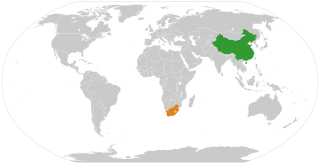
People's Republic of China – South Africa relations refer to the current and historical relationship between the People's Republic of China (PRC) and the Republic of South Africa (RSA).

China–Senegal relations refer to the foreign relations between China and Senegal.
Chinese foreign aid may be considered as both governmental (official) and private development aid and humanitarian aid originating from the People's Republic of China (PRC).
The People's Republic of China emerged as a great power and one of the three big players in the tri-polar geopolitics (PRC-US-USSR) during the Cold War, after the Korean War in 1950-1953 and the Sino-Soviet split in the 1960s, with its status as a recognized nuclear weapons state in 1960s. Currently, China has one of the world's largest populations, second largest GDP (nominal) and the largest economy in the world by PPP.


